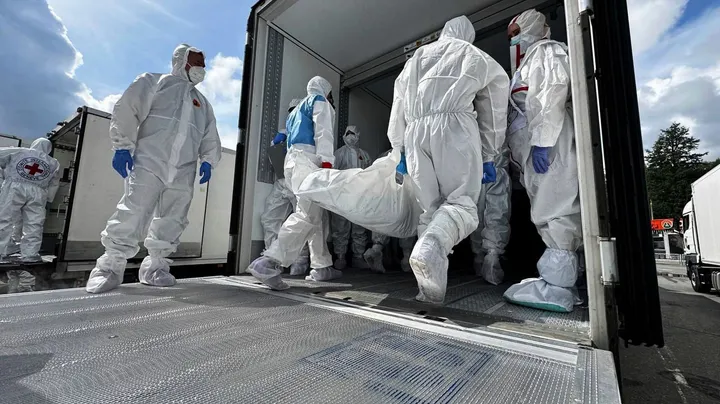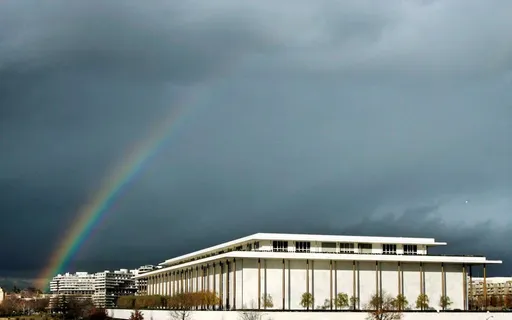"Be careful what you wish for.”
For Ahmed Tabaqchali, a non-resident fellow at IRIS Middle East, this Chinese proverb perfectly describes the Iraqi leader Muqtada al Sadr’s current position in the latest wave of protests that have begun sweeping through southern Iraq in mid-July.
After a mass protest broke out in southern Iraq in 2015, Sadr, who was once known for his Shia sectarian policies, began rebranding himself as an opponent of the established parties and supporter of the underprivileged. His populist move paid off.
Though he didn’t participate in the polls as a candidate, his rhetoric, combined with frustrated Iraqis’ low turnout in the elections, secured his party, Revolution for Reform (Al Sairun), a comfortable lead during the May 2018 elections. It brought Sadr to a position of power.
Only two months after, “this government is corrupt, we don’t want this,” “we want our Iraq back,” slogans swept through Southern Iraq, one more time. Sadr said he supports the new wave of protests, but this time he’s not only an opposition leader – he’s also entitled to form a government amid protests.
For Tabaqchali, that meant Sadr, who once expanded his follower base by supporting the protesters, was now caught up between two things: the reform movement and representing the government that he needs to form.
“I think Sadr’s support is just a smoke screen in a way that he wants to tell the protesters that he's with them,” Tabaqchali told TRT World. He thinks Sadr wants the protests to fade away before he could form a government.
Riding the populist wave during his election campaign, Sadr collaborated with the communist party, promised to end the corruption problem, end sectarian division, bring back basic services and form an inclusive government. But experts say delivering on these promises won't be easy.
“The issues that the protesters all demand will not be folded in a day or a month or six months or a year,” Tabaqchali says.
With temperatures up to 50 degrees Celsius, electricity and internet cut, limited water and lack of other services despite vast oil wealth in the south, Iraqis’ frustration has been simmering for a long time. The country, especially the south, has not recovered after the US intervention in Iraq in 2003 and basic services deteriorated further after Daesh’s emergence in 2014.
“Our demands have been constant for almost the past 15 years. In winters, the politicians keep saying to us that the problems have been solved. However, the problem peaks in August, July, in the summer,” Ali Kareem Talib, a 25-year-old protester from Basra tells TRT World. He says he has been part of all stages of demonstrations since 2015.
Although Sadr has continued his populist rhetoric after the latest protests broke out, Talib says anti-Sadr sentiment among protesters is growing due to his lack of inaction and visible support.
“Actually, this has been a negative thing for him. He has lost a lot of support because of this” Talib says.
“These are general civil demonstrations. They're not following any kind of a part of political or a sectarian agenda ... our fundamental concerns are civil services,” he says.
But Zaid al Ali, a lawyer and Senior Adviser at The International Institute for Democracy tells TRT World that Sadr’s base which “stems from Iraq’s marginalised,” are the ones who have a big role in mobilising and protesting.
“He's causing a dilemma because, on one hand, he was calling for reform at improving circumstances and then now he is part of the government – making peace moves with almost every party that he never talked to in the past,” he says.
“Sadr himself, of course, is very aware of that. Now he's in a position where he's going to have to deliver something and I expect that he's a little bit worried because he knows the limitations of the system,” Ali says.
Reports said, Iraqi Shia cleric Ayatollah al Sistani, a critic of the government who had an important role in mobilising the fight against Daesh with his religious ruling in 2014, encouraged protesters to put pressure on the big parties to form the new government and pick technocrats. Pushing the strong parties to negotiate on high speed, Sistani said the new system should be based on different criteria other than the quota system, which was introduced after the US invasion of Iraq in 2003.
According to the system, MPs are appointed from each major ethnic and sectarian group in Iraq.
Before Sistani’s call, Sadr had proposed postponing the formation of the government, unlike the current Prime Minister Haider al Abadi, who called for the immediate formation of the government. But later Sadr proposed a list of criteria to choose the next prime minister, as a step to secure the appointment of a new prime minister and formation of the government.
Another supporter of the protests, Hasseb Humud Hussein, a 41-year-old textile shop owner in Basra, says Sadr's supporters are now disappointed.
“They expected him to appear in the protests and when he didn’t, they started to think that he is no different than the other politicians who only think [about] their own political gains,” Hussein tells TRT World.
“The politicians and MP’s who have the power steal money instead of fixing the services such as salty water, unemployment, and electricity cuts,” he says. For him, the political parties and politicians are not only unable to give them basic rights, but they’re also part of the problem.
“We didn’t have any hope that the elections would bring a difference, as long as we have the same parties, same faces nothing will change,” Hussein says.
In a record low turnout, only 44.5 percent Iraqis went to the polls in the 2018 elections.
Zaid al Ali says the protests put Sadr in a spot, but don't necessarily signal a revolution.
“People are extremely frustrated with the political system, but the options for change are very limited for them – there's no organised political alternative,” Ali says.
“There's no way that people would go back to the, you know, the previous regime or anything that's motivated by the previous regime. People wouldn't accept that.”
But Iraqi shop owner Hussein appeared to miss the order under the previous regime, despite the 24-year brutal rule of Saddam Hussein.
“Nothing will be fixed unless a leader like Saddam shows up,” Hussein says.
The other protester, Talib, isn’t keen to go back to a Saddam-like ruling, but he agrees that no government after the US invasion has been efficient.
“Neither Maliki government nor the Abadi government – both don't really know what's going on in their own ministries,” Talib says.
'A political system designed to maintain itself only'
For Ali, who has investigated how corruption, incompetence and sectarianism have undermined democracy in Iraq, says “the only way out of this is through a change from within the system,” rather than going back to the old regime days.
“The political system doesn't allow for significant change - its priority is to maintain the current political system. It's self-interested rather than improving standards of living,” he says.
Although the sectarianism became less popular among the politicians during the last election, the system did not change even after the US introduced a new system in Iraq. For decades, parties which are unable to secure a majority in parliament became part of alliances in order to participate.
“The political system requires for the government, the future government in any future government to be a coalition government that is populated by dozens of political parties,” Ali says.
“So any future government that is formed after today will be composed of between 25 and 35 ministers, each of whom represents different political parties. They won't be cohesive or agree on priorities. In fact, they won't have any priorities. Their priority is just to be in government.”
For Tabaqchali, that will put Sadr’s promises at stake.
“There will be powerful people in the coalition and they will be demanding some of the important ministries such as interior or defence. But the dilemma is, how [Sadr] will bring technocrats at the same time,” he says.
During Kuwait conference, donors pledged to Iraq $30 billion from donors to rebuild Iraq’s economy and infrastructure, falling short of Iraq’s appeal of $88 billion.
“During the Kuwait conference, people thought thatIraq would have collected enough money. It's not enough to begin fixing all of Iraq, but it's enough to start the major reconstruction drive,” he says.
But Tabaqchali says, the obstacle for Iraq, which has the world's best-funded United Nations appealisn’t financial. It is the government’s failure to spend wisely on rebuilding the infrastructure – and the country’s corrosive corruption.
“There's no peer programme that they [all parties in the parliament] agree on. So the ministries are self-administering … The difficult part, a lot of it is now built into the culture. A lot can be done if they address the real issues because these require a clear mandate,” Tabaqchali says.
For him, the elections are not an indication of Iraq's progress. And the chance of the protests to bringing a change that elections couldn’t are slim.
“But the protest movement is real. The demand for services is real,” he says.
“The question is if Sadr is still up to challenge. That is what is unknown.”
























